Food and drink highlights of Netherlands
- Tipping - Do leave a restaurant tip if you feel that the service was outstanding. Legally, the service charge for restaurants is included in your bill, but for good service you may want to leave a 10% tip.
- Eating hours -
- Shopping hours - In general, shops are open from Monday to Saturday and from 9 A.M. until 6 P.M. Many shops in the Netherlands are closed on Monday mornings. This is more likely to happen in smaller Dutch villages. Bigger supermarkets tend to open up an hour earlier than standard Dutch shops. They also stay open a few hours later in the evenings.
- Discount shops -
- Cuisine type - Traditionally, Dutch cuisine is simple and straightforward, with many vegetables and little bit meat.
- Savoir Vivre - It is impolite to begin your meal before others at the table. It is polite to keep one’s hands above the table until all have finished eating. As people begin to eat, some may say 'Eet Smakelijk' which means 'Eat well and with taste'.
- Main ingredients - A simple Dutch meal traditionally consists of meat, potatoes, butter, a boiled vegetable, and salad. A lot of Dutch food is based around agriculture - wheat and vegetables.
- Most popular alcohol - Jenever is undoubtedly the most famous Dutch drink. It is a very thick herbal gin with a taste of molasses and common juniper berries.
- Important info - Bills are usually split equally between couples, as it can become awkward to specify who ate what. However, in groups, people usually pay for what they ordered.
- Warning - The Dutch tend to avoid wasting food. Thus, many appreciate it when visitors finish everything on their plate.
Did you find this information valuable?
Thank you for co-creating with us! 😊 Remember to give us feedback by pressing the thumbs up or down under every section.
The quality of content is essential for us. Please let us know what influenced your opinion.
Thank you!
Foods to try in Netherlands
- StamppotThe traditional Dutch dish has a potato base and is prepared with vegetables, according to taste. Basic ingredients – white potato, sweet potato, carrots, onion and cabbage – are simmered in a pot, mashed and topped with rookworst (smoked sausage).
- ErwtensoepThe thick soup is almost like a paste with a variety of vegetables accompanying the peas, saving it from tasting solely of peas. The soup is usually served with sliced rookworst, on top.
- KibbelingKibbeling is a Dutch snack made of breaded pieces of fish, often served with a garlic or mayonnaise-based tartare sauce.
- PannenkoekenDutch pancakes – are more like crepes; they can be prepared both sweet and savory and are a typical Dutch dinner or lunch. Each pancake is as big as the plate. Savory pannenkoeken, topped with cheese, ham, tomato and fried onions, are the popular variation.
- Dutch BroodjesBroodjes – or Dutch Sandwiches – are a popular grab-and-go meal in the Netherlands. These bread rolls come with a great variety of ingredients – including meat, like beef, pork, fish, liver and tartare. The most unique broodje is a warm beef slathered with peanut sauce.
Did you find this information valuable?
Thank you for co-creating with us! 😊 Remember to give us feedback by pressing the thumbs up or down under every section.
The quality of content is essential for us. Please let us know what influenced your opinion.
Thank you!
Unusual facts about food in Netherlands
- The Dutch invented gin.
- In Amsterdam, you will find all kinds of food available, from Pizza to Greek moussaka, to Dutch pancakes, pea soup, and Hotch Potch.
- The Dutch are the largest consumers of licorice in the world.
- French fries are served with mayonnaise.
- The Dutch have the lowest incidence of lactose intolerance.
Did you find this information valuable?
Thank you for co-creating with us! 😊 Remember to give us feedback by pressing the thumbs up or down under every section.
The quality of content is essential for us. Please let us know what influenced your opinion.
Thank you!
Place to stay in Netherlands
- Best booking sites -
- Seasonality - In the Netherlands, more and more hotel rooms are rented, making tourism less dependent on the season. According to analyzes, in recent years the greatest tourist traffic has occurred in May, July and August. Despite the fact higher prices can be expected in the summer months.
- Cost-effective - For cheap accommodation, it is worth thinking about private accommodation - rooms in private houses, sometimes called guest houses, offer rooms with breakfast.
- Air conditioning -
- Parking - Free parking is available depending on your location. Sometimes there is a seat on the street for a lower fee. Please check when booking.
- Unusual accommodation - Throughout the Netherlands, historical religious buildings have been transformed, and some of them today include hotels. One example is the 15th-century Kruisherenhotel in Maastricht, which has been converted into a trendy hotel. Another unique places to stay are houseboats and windmills.
- Camp - Dutch campgrounds and holiday parks are small cities, you finde there cafes, stores, playgrounds, game rooms and swimming pools; there are all the facilities typical for families.
- Important - It's good to know that historic canal view houses are usually narrow, tall and deep, and to the room can only be accessed by stairs.
Did you find this information valuable?
Thank you for co-creating with us! 😊 Remember to give us feedback by pressing the thumbs up or down under every section.
The quality of content is essential for us. Please let us know what influenced your opinion.
Thank you!
Accommodation in Netherlands
- Typically only newer and larger accommodations have elevators.
- By Dutch standards, if a hotel has more than 20 rooms, it is already considered large.
- Wireless Internet is usually included in the price.
- Van der Valk is the largest hospitality chain in the Netherlands.
- When looking for accommodation on the canal, you have at your disposal small hotels, apartments, guesthouses and historic buildings converted into hotels.
Did you find this information valuable?
Thank you for co-creating with us! 😊 Remember to give us feedback by pressing the thumbs up or down under every section.
The quality of content is essential for us. Please let us know what influenced your opinion.
Thank you!
Getting around Netherlands
- Most popular - One great way to see the Netherlands, whether you’re a keen cyclist or an idle pedaller, is to travel by bike.
- Cost-effective - The vast majority of people travel by rail, which offers many discounts, promotions, and are more comfortable. So if possible, it is better to take the train.
- Time-efficient - For the most part, driving a car round the Netherlands is pretty much what you would expect: smooth, easy and quick
- Traffic safety - The country has a uniformly good road network, with most of the major towns connected by some kind of motorway or dual carriageway, though snarl-ups and jams are far from rare.
- Important - Foreigners who do not have a place of residence in the Netherlands are fined , and obliged to pay in cash immediately after the offense which is the subject of the penalty.
- Warning - If the speed limit exceeds 50 km / h, the car may be confiscated.
Plane
- Schiphol Airport is located 17 kilometers away from Amsterdam.
Metro
- There are four metro lines in Amsterdam.
- The tram network in Amsterdam is comprehensive and can take you almost anywhere.
- The most expansive metro system is in Rotterdam/The Hague.
Train
- Trains are used for longer rides, but there are some , the express and local, that stop more locally.
- The Netherlands has a modern and broad railway network.
- You can choose between first and second class, although not all trains will allow you to make reservations for the kind of seat you want.
- There are two fast trains in the Netherlands - the Fyra and NS Hispeed. They travel from Rotterdam to the Amsterdam Airport Schiphol or Amsterdam in about 40 minutes.
- Night trains run every hour of each night of the week.
- You’ll need at least €20 credit on your credit card before traveling on any NS train service. Failing to try to to so could see you get charged the complete €20 boarding fare.
- The national carrier is NS (Nederlandse Spoorwegen). Search for connections at http://www.ns.nl/reisplanner-v2/index.shtml?language=en.
Bus
- There are midi busses available. They are like standard buses, just smaller.
- Most bus routes in Amsterdam go from north to the center and out to the suburbs.
- The operators of Dutch bus networks vary across the country.
- You're able to use your OV-chipkaart on all bus types.
Taxi
- Most towns and cities have taxi ranks near prominent attractions, stations and ports.
- Taxis in the Netherlands are metered.
- You can negotiate a fixed-fare with your driver before you start your journey.
- Shared taxis are available in many Dutch towns, although you won’t find them in bigger cities.
Bicycle
- You can rent a bike from most NS train stations for about € 8 a day, plus a deposit of anywhere between €50 and €150, depending on the model.
- Most bike shops rent out bicycles for around the same amount as NS, and they can be more flexible on deposits: some may accept a passport in lieu of cash.
- Advance reservations are advised.
- There are about 35,000 km of bicycle paths in the country.
- At the National Park de Hoge Veluwe, you can cycle around the area free of charge. There are special white bicycles in the park, which are available to tourists for free.
Car
- Public roads and highways are free of charge.
- The maximum speed is 50 km/h in built-up areas, 80 km/h outside, 120 km/h on motorways – though some motorways have a speed limit of 100 km/h, indicated by small yellow signs on the side of the road.
- The permissible level of alcohol is 0.05 per mille.
- In the Netherlands, vehicles move on the right-hand side.
Hitchhiking
- Hitchhiking in the Netherlands is considered safe.
- Since 1991, Dutch students have had a card providing them with free public transport (on both weekdays and weekends ), therefore hitchhiking is not as popular as it used to be.
- The latest survey by HitchWiki has found that the Netherlands is one of the easiest places for hitchhikers to snag a lift. The report found the average waiting time on Dutch roads is less than 30 minutes.
- Hitchhiking in the Netherlands is quite easy, and legal in most places, although not on motorways.
Did you find this information valuable?
Thank you for co-creating with us! 😊 Remember to give us feedback by pressing the thumbs up or down under every section.
The quality of content is essential for us. Please let us know what influenced your opinion.
Thank you!
How to travel in Netherlands
- Do switch to public transportation if you can - buses and trains are a tad too expensive, but they are clean, on-time and routes are very well connected.
- Don’t do the hop-on-hop-off bus in Amsterdam. It’s all about the canals here, so skip the bus tour, and cruise on a boat instead.
- Public transport in the Netherlands uses OV-chipkaart, which in free translation means chip cards for public transport. Even a single or temporary ticket, in fact a chip card for single use.
- The OV-chipkaart comes in two types: personal or anonymous. To obtain a personal OV-chipkaart, you must go through an application process and provide a photograph. The anonymous chipkaart can be purchased in vending machines at railway stops.
- Products like monthly-passes or season tickets can be loaded onto your personal OV-chipkaart. These tickets are often bought online, but you’ll got to manually load them onto your card at a delegated upload point or oneamong the yellow OV-chipkaart machines.
Did you find this information valuable?
Thank you for co-creating with us! 😊 Remember to give us feedback by pressing the thumbs up or down under every section.
The quality of content is essential for us. Please let us know what influenced your opinion.
Thank you!
Best time to visit Netherlands
When to go
- The best time to go to Netherlands is between May and September. The conditions are comfortable from late spring to early autumn, although rain is frequent.
Temperature
- The annual average temperatures range between 5°C and 14.4°C . The average high temperatures are between 20°C and 25°C during the summer. Few days cross 29.4°C, mostly in the southeast. The average low temperatures are between 0°C and 4.4°C during the cold season.
Rainfall
- The annual average rainfall in the Netherlands ranges between 736.6mm and 838.2mm. Rainfall is moderate but frequent throughout the year.
Spring
- From March to May,it is a quite cool season, characterized by a slow increase in temperature. From May, days are sunny and relatively warm, especially in the second half of the month.
Summer
- From June to August, temperatures are generally pleasant in summer, but the sun does not shine very often. Cool and rainy days are quite frequent. However, during the brief hot air invasions, the most well liked area is that the south-east (see Eindhoven).
Fall
- Early autumn is colorful, and September registers day temperatures above 20°C. Later, it becomes gradually colder, cloudy, and rainy, and oftenly windy.
Winter
- Winters are often quite cold and dark with the likelihood of some snow.
Did you find this information valuable?
Thank you for co-creating with us! 😊 Remember to give us feedback by pressing the thumbs up or down under every section.
The quality of content is essential for us. Please let us know what influenced your opinion.
Thank you!
Netherlands weather Insights
- The Netherlands has a marine type of climate.
- The ocean affects weather conditions in the Netherlands.
- Summers are pleasant with very changeable periods.
- Excessive hot weather is rare.
- In winter, you will experience foggy weather.
Did you find this information valuable?
Thank you for co-creating with us! 😊 Remember to give us feedback by pressing the thumbs up or down under every section.
The quality of content is essential for us. Please let us know what influenced your opinion.
Thank you!
Savoir-Vivre in Netherlands
- Greetings - In the Netherlands, we greet each other with a handshake and a nod of the head. And among friends and family, kiss the cheeks three times.
- Punctuality -
- Dress code - Bring a jacket - even in the summer, with a warm forecast, rain is inevitable in the Netherlands. Don't wear sneakers, unless you are participating in sports. Pickpockets pay attention to footwear, and sneakers may suggest a tourist and thus an easy target. Instead, wear a pair of comfy walking shoes.
- Home invitation - The dutch rarely invite those whom they are not closely acquainted with to visit their house. Rather, invitations to meet for coffee in public are more common. Once you arrive, it is customary to greet everyone present, including children. It is also common to bring a gift to the host or hostess (chocolates, flowers or a book).
- Etiquette - Maintaining eye contact is valued and shows sincerity. The Dutch tend to have a direct communication style, speaking quite frankly in a straightforward manner.
- Drones - We recommend using this map to easily check the applicable restrictions. If you are looking for more specific information take a look here.
Did you find this information valuable?
Thank you for co-creating with us! 😊 Remember to give us feedback by pressing the thumbs up or down under every section.
The quality of content is essential for us. Please let us know what influenced your opinion.
Thank you!
Things not to do in Netherlands
- Bring a credit card with a chip and a PIN - they're often required to complete card payments.
- If you were invited to a meal and the host told you it was their treat, you should still pay your portion of the bill or expect the bill to be split up evenly.
- Book everything in advance - booking a few weeks ahead of the trip will save you a headache upon arrival.
- Don't call the Netherlands Holland - it may offend the locals. Holland is just two of the twelve counties in the Netherlands.
- Don’t walk on the bike lanes.
Did you find this information valuable?
Thank you for co-creating with us! 😊 Remember to give us feedback by pressing the thumbs up or down under every section.
The quality of content is essential for us. Please let us know what influenced your opinion.
Thank you!
Interesting facts about Netherlands
- The tallest people in the world live in the Netherlands.
- The Netherlands is the world’s biggest flower exporter.
- Amsterdam has over 1,200 bridges.
- The Netherlands was the first country to legalize same-sex marriage.
- The Dutch own more bicycles than any other nation in the world.
Did you find this information valuable?
Thank you for co-creating with us! 😊 Remember to give us feedback by pressing the thumbs up or down under every section.
The quality of content is essential for us. Please let us know what influenced your opinion.
Thank you!
Best souvenirs from Netherlands 💝
Tulips, art and excellent culinary - the first things to cross our minds when we think about the Netherlands. In this article, we have collected some suggestions of the most interesting souvenirs that you can bring to your loved ones and share with them memories from an unforgettable trip to the Netherlands!
🍺 Beverages
Jenever Gin 💲 💲 💲 💲
Gin with a dense texture, made of molasses with the addition of cone berries. Formerly used as a medicine, today it is a delicious, alcoholic drink with a unique composition of flavours.
🛒 Where to buy: supermarkets
💰 Price range: 5 - 60 EUR
🎁 For whom: grandparents, parents, friends, spouse
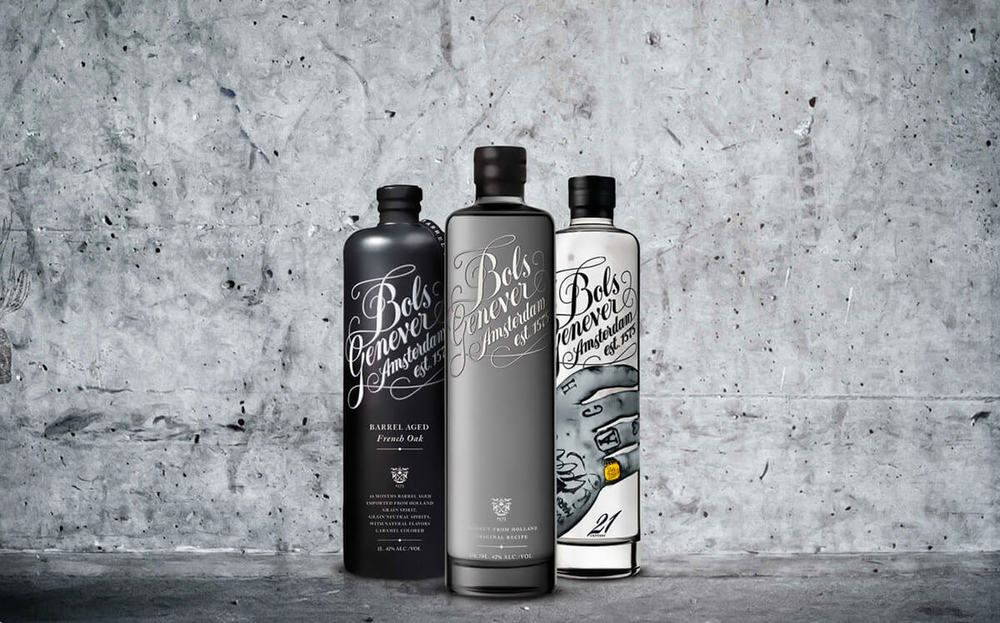
Oranjebitter 💲 💲 💲 💲
This bitter-orange liqueur is the favourite drink on King's Day because of its characteristic colour. It was created in the 17th century in honour of the battles won by Prince Frederick Hendrik.
🛒 Where to buy: supermarkets
💰 Price range: 10 - 20 EUR
💡 Pro tip: The best Oranjebitter is produced by De Kuyper.
🎁 For whom: grandparents, parents, friends
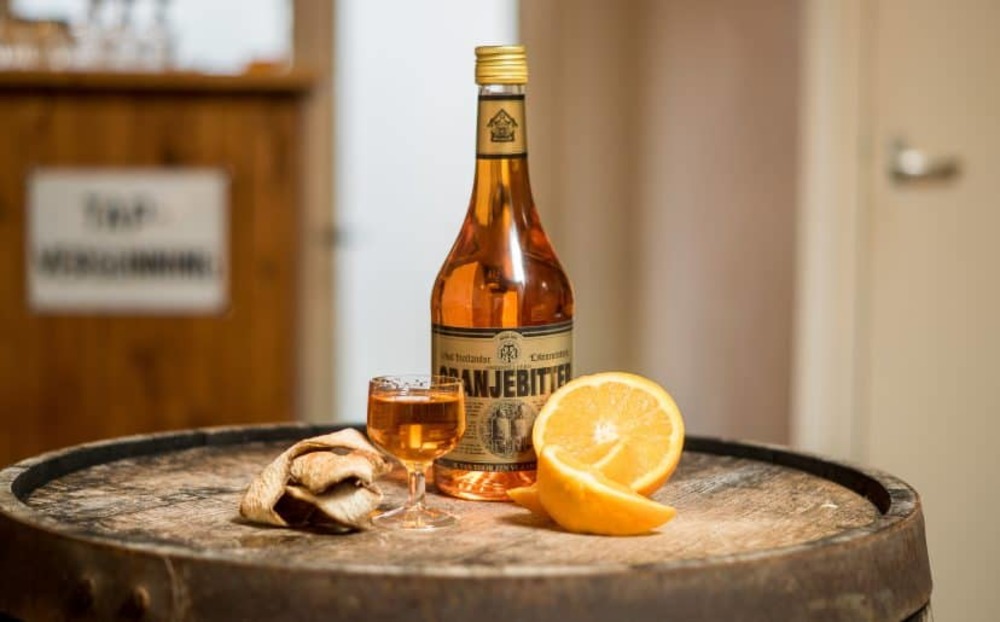
Schrobbeler 💲 💲 💲 💲
Very sweet and herbal liquor with a strong taste of licorice. A popular choice of Dutch when going to a party. Invented not so long ago (the 1970s), makes for a great gift for anyone who's looking for unusual flavours. It’s also a popular party drink.
🛒 Where to buy: supermarkets
💰 Price range: 10 - 20 EUR
🎁 For whom: grandparents, parents, friends, spouse
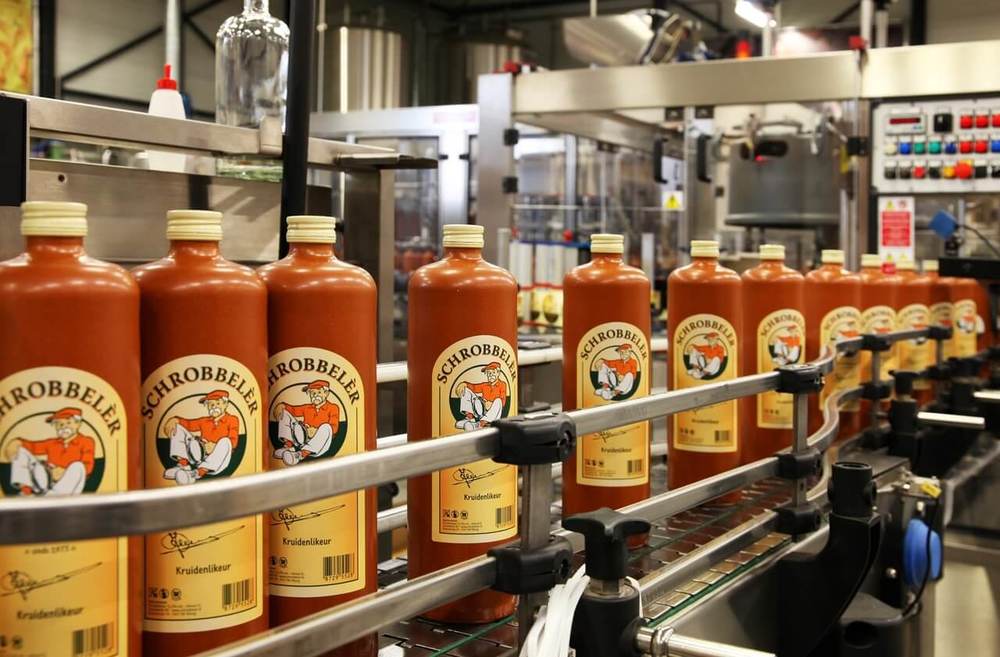
👚 Clothes
Clogs 💲 💲 💲 💲
These famous wooden shoes are over 800 years old. The wooden sole and boot construction made it easier for inhabitants to move on muddy ground and protected feet from injury. In addition, they kept their feet warm during winter and gaved ventilation in the summer, preventing foot mycosis. In the Netherlands, you can use clogs as gardening shoes or... you can wear them for your next party!
🛒 Where to buy: gift shops
💰 Price range: 10 - 20 EUR
🎁 For whom: grandparents, parents, friends, kids, spouse
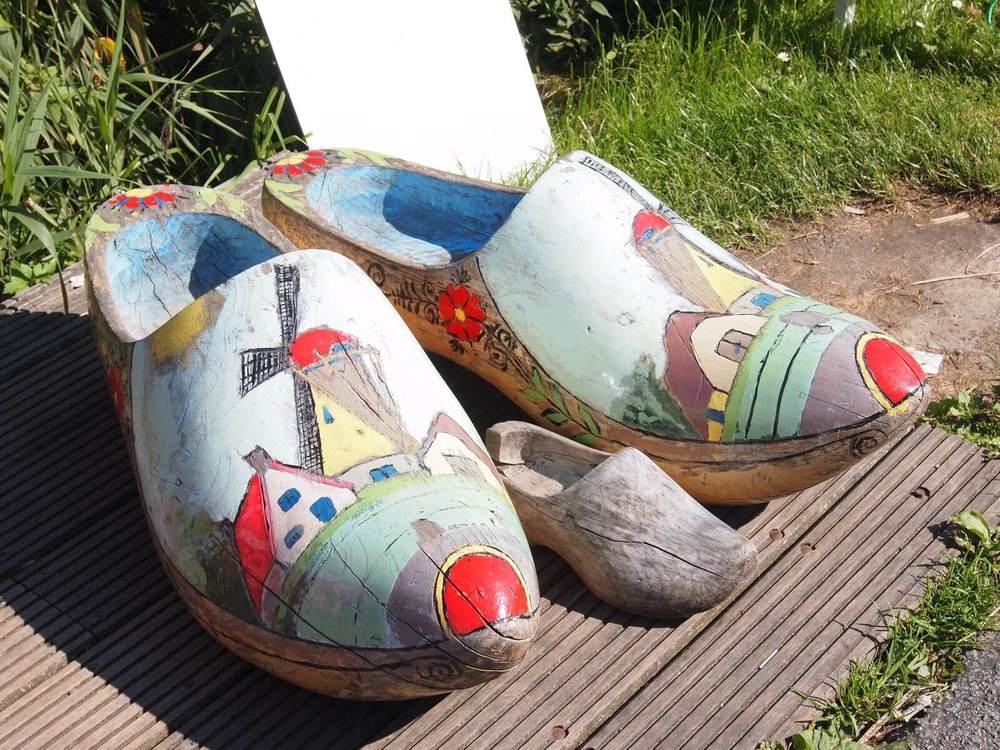
Gumshoe 💲 💲 💲 💲
Amsterdam gumshoes are eco-friendly products made from recycled gum with a printed map of the capital's city centre on the soles.
📌 Region: Norht Holland
🛒 Where to buy: dedicated shops
💰 Price range: 190 - 250 EUR
🎁 For whom: spouse, kids
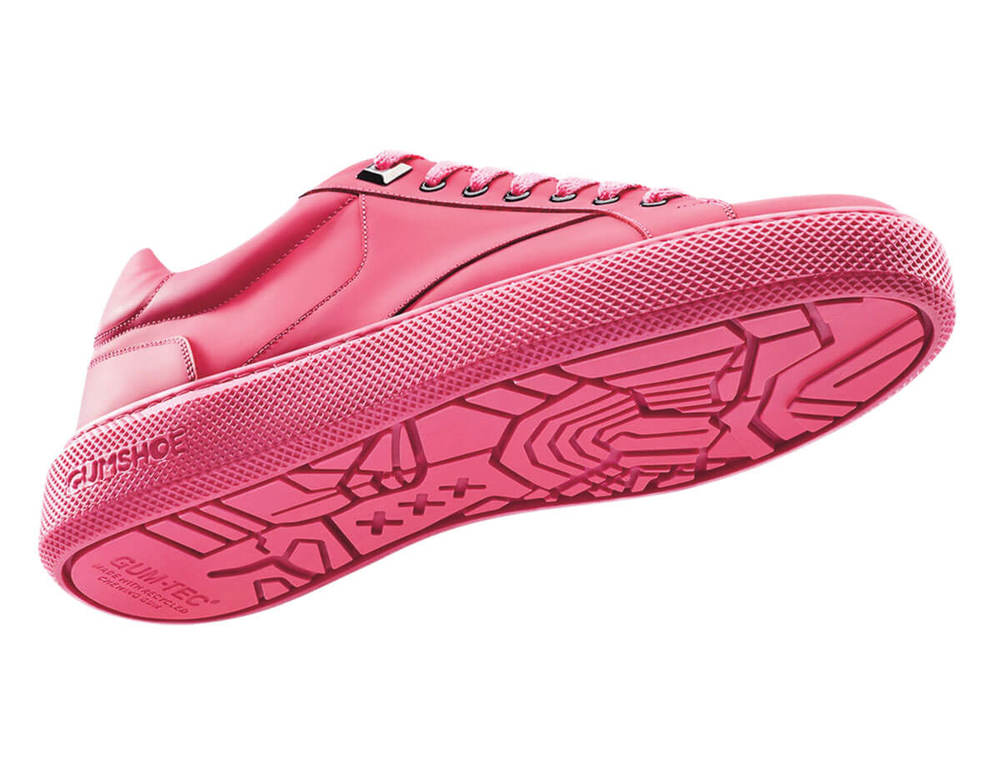
Hat from Barts 💲 💲 💲 💲
Very popular and stylish dutch hats will perfectly serve as a practical souvenir for colder days.
📌 Region: North Holland
🛒 Where to buy: clothing stores
💰 Price range: 20 - 30 EUR
🎁 For whom: spouse, kids
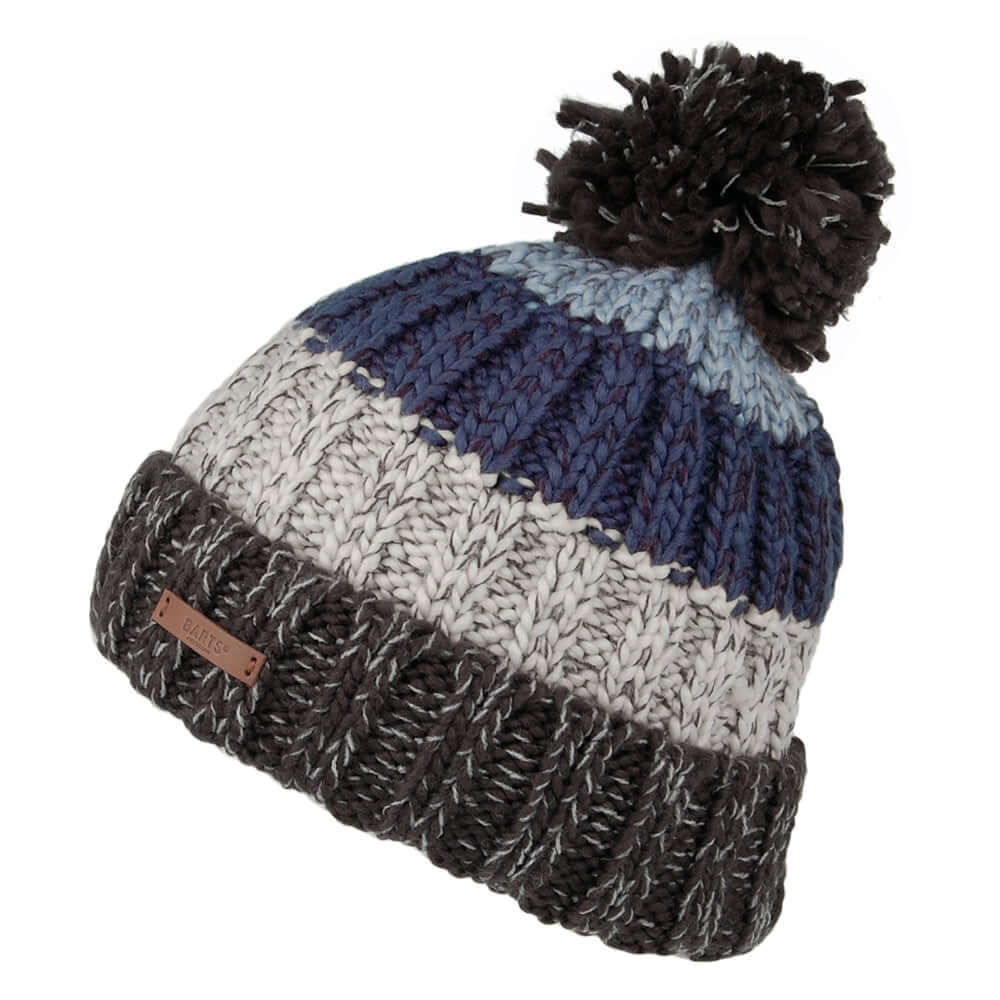
Pip Studio Bathrobe 💲 💲 💲 💲
Pip Studio is a company that sells home products - towels, bedding, sheets, and decorations. The most popular, however, are their colorful bathrobes with floral patterns. Available in all sizes, they will satisfy all fans of at-home relaxation.
📌 Region: North Holland
🛒 Where to buy: De Bijenkorf shop
💰 Price range: 100 - 200 EUR
🎁 For whom: grandparents, parents, friends, spouse
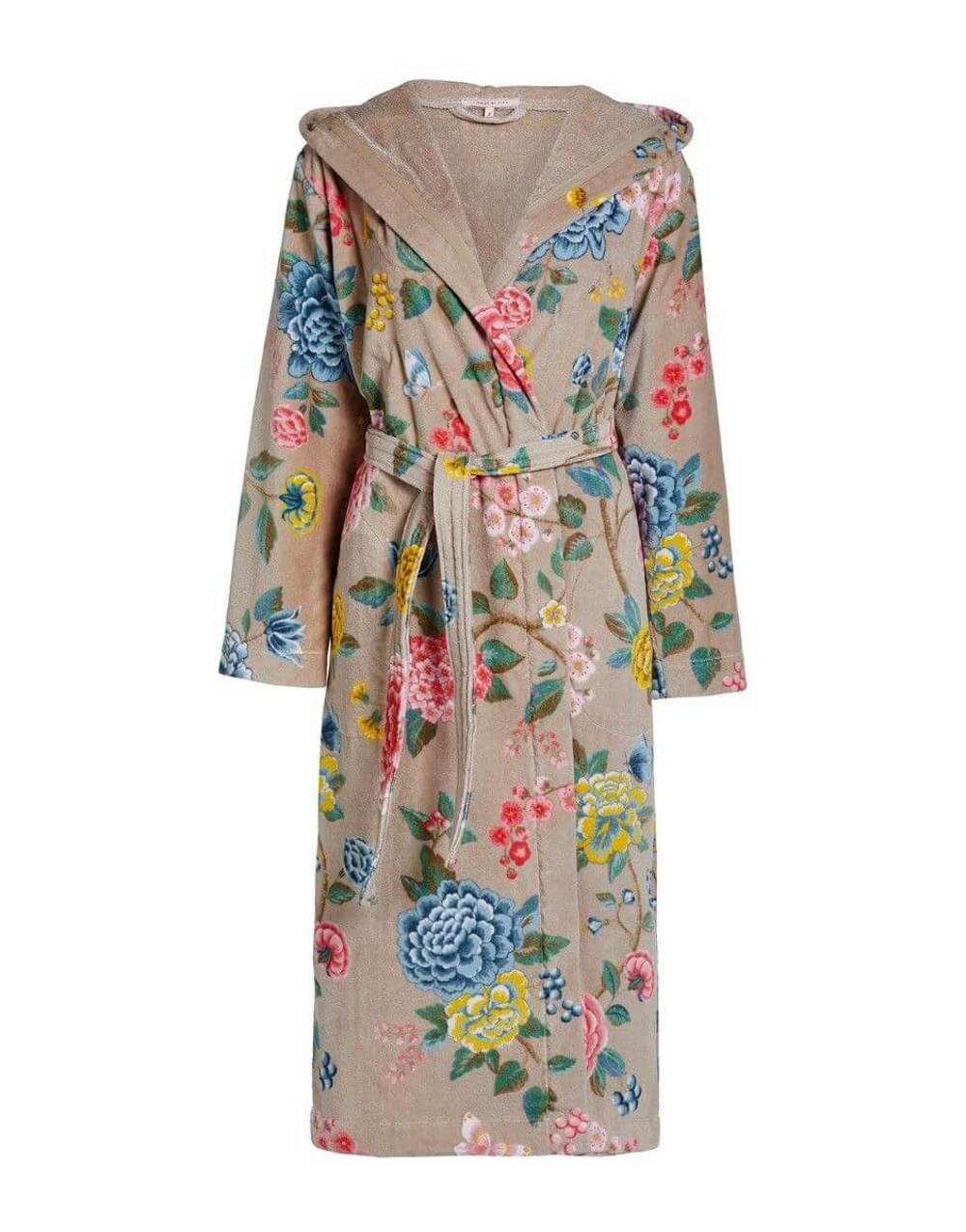
🛍 Collections
Bike seat cover 💲 💲 💲 💲
A lot of Amsterdam citizens travels everwhere using a bike s o it is fairly easy to find cyclist wide variety of bike accessories in Netherlands. A lot of Amsterdam’s citizens move around with a bike, so it's pretty easy to find cycling accessories shops.
📌 Region: North Holland
🛒 Where to buy: bike shops, dedicated shops
💰 Price range: 10 - 40 EUR
🎁 For whom: parents, spouse, kids
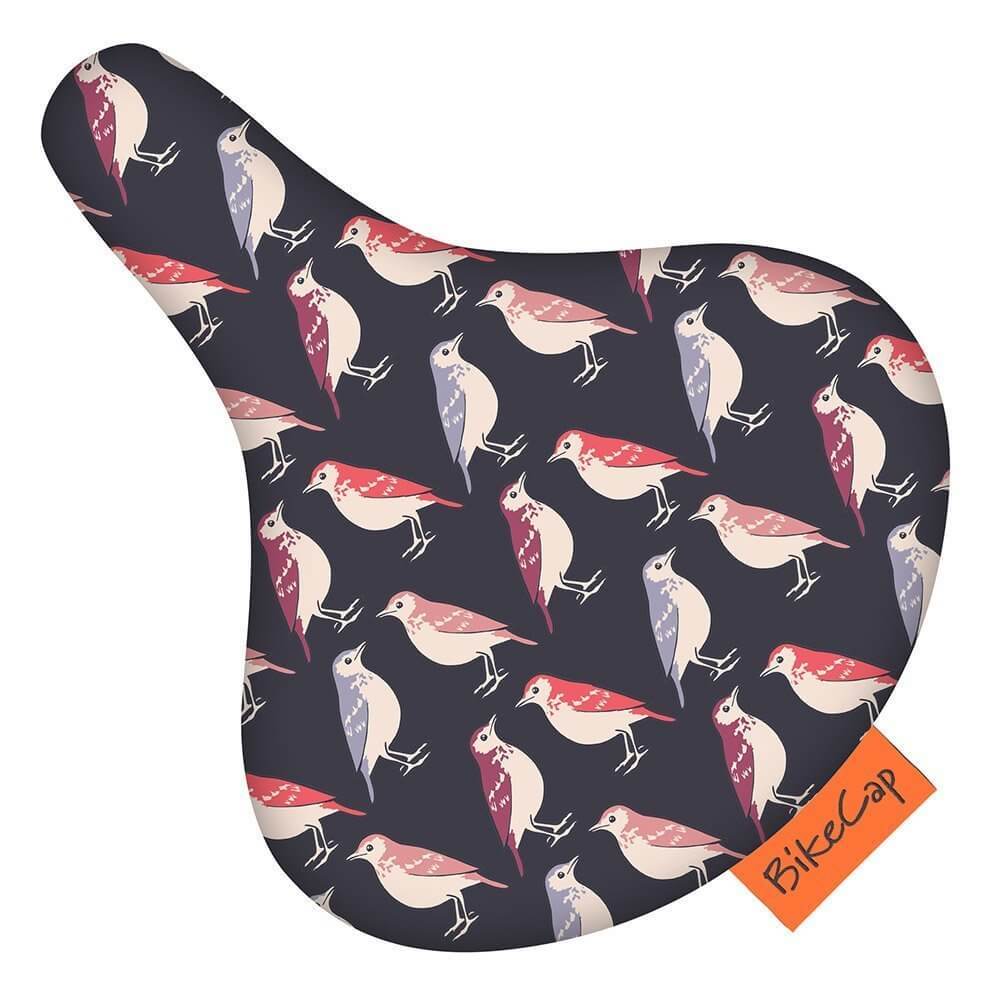
Jigsaw Puzzles 💲 💲 💲 💲
Filled with little elements and small details, this colorful activity is closely tied to the Netherlands. Jan Van Haasteren became famous for drawing those pictures presenting funny situations and what is common for every puzzle is that there are hidden Jan trademarks which are to be found during the puzzle.
🛒 Where to buy: toy shops
💰 Price range: 10 - 50 EUR
🎁 For whom: grandparents, parents, spouse, friends, kids
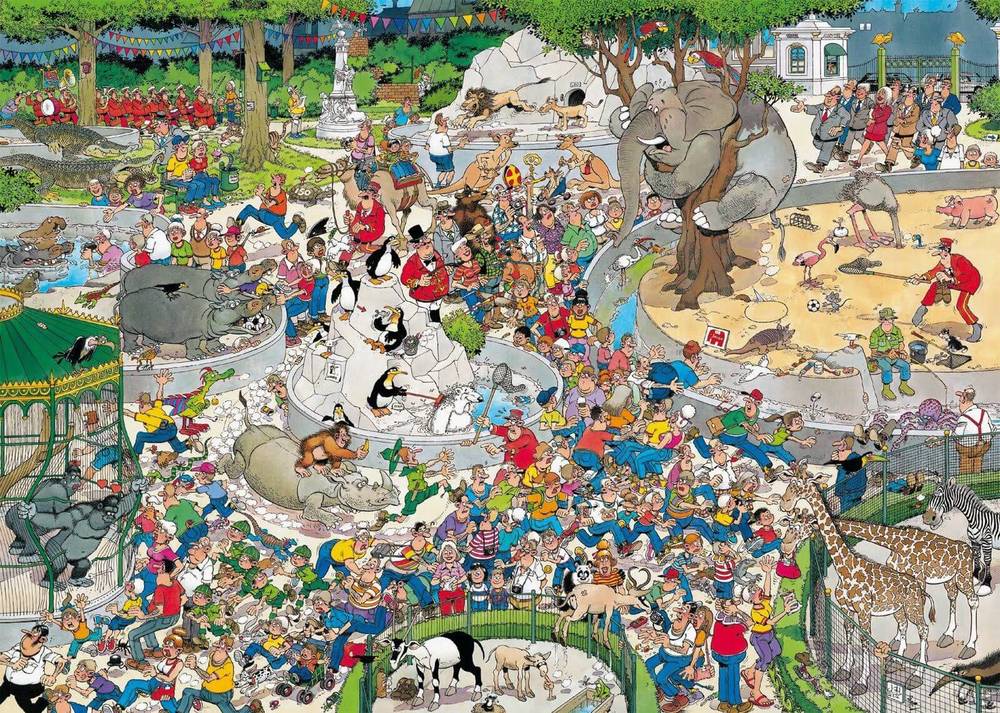
Nijntje Knuffel 💲 💲 💲 💲
Nijntje is a popular rabbit from a series of children's books from the 1950s by Dutch artist Dick Bruny. The name Nijntje comes from the childish mispronunciation of the Dutch "konijntje" meaning "bunny". Despite its name, Nijntje is most commonly known as "Miffy".
📌 Region: North Holland
🛒 Where to buy: De Winkel van Nijntje shop
💰 Price range: 15 - 100 EUR
🎁 For whom: kids, friends
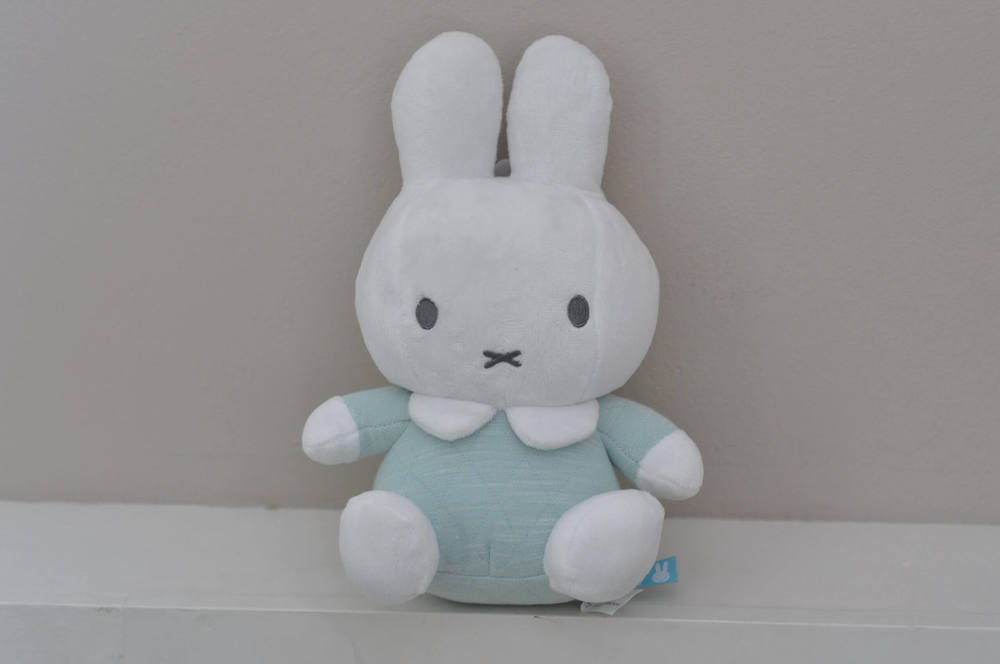
Tulip onions 💲 💲 💲 💲
Tulips are beautiful, colourful flowers and undoubtedly the symbol of the Netherlands. At Amsterdam's flower market, you can buy both bouquets and tulip bulbs, which you can plant in a pot when you get home. You won't find so many kinds of this plant anywhere else!
📌 Region: North Holland
🛒 Where to buy: flower markets, Flower Auctions
💰 Price range: 0.5 - 10 EUR
🎁 For whom: grandparents, parents, friends
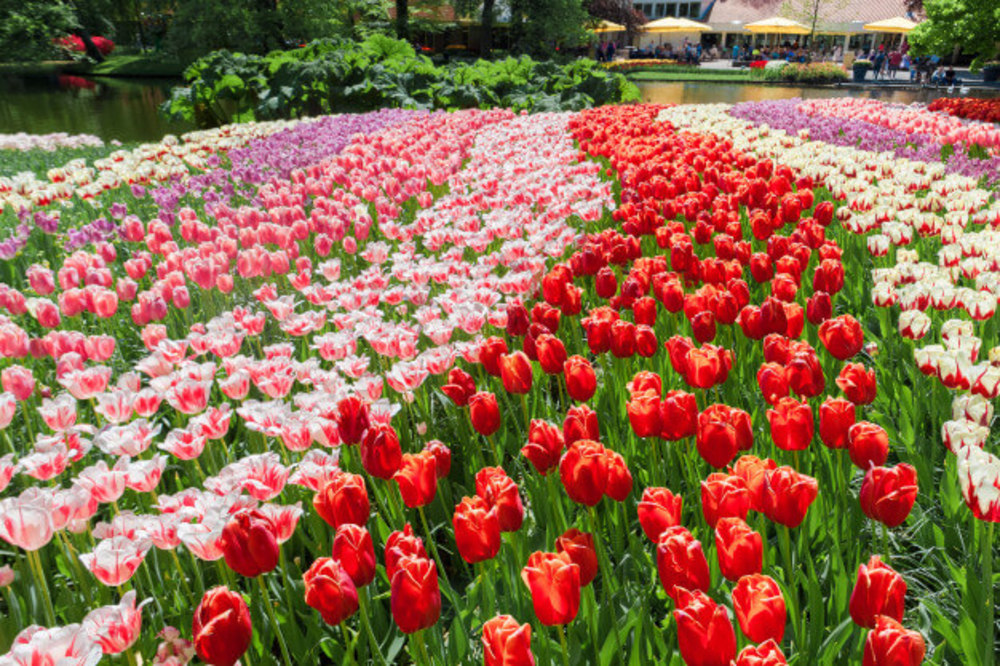
💄 Cosmetics
Soaps 💲 💲 💲 💲
Handmade Dutch soaps come in a wide variety of colors, shapes and scents. Sometimes, they have printed words on them referring to the name of the shop and to Amsterdam.
🛒 Where to buy: gift shop
💰 Price range: 2 - 10 EUR
🎁 For whom: grandparents, parents, spouse
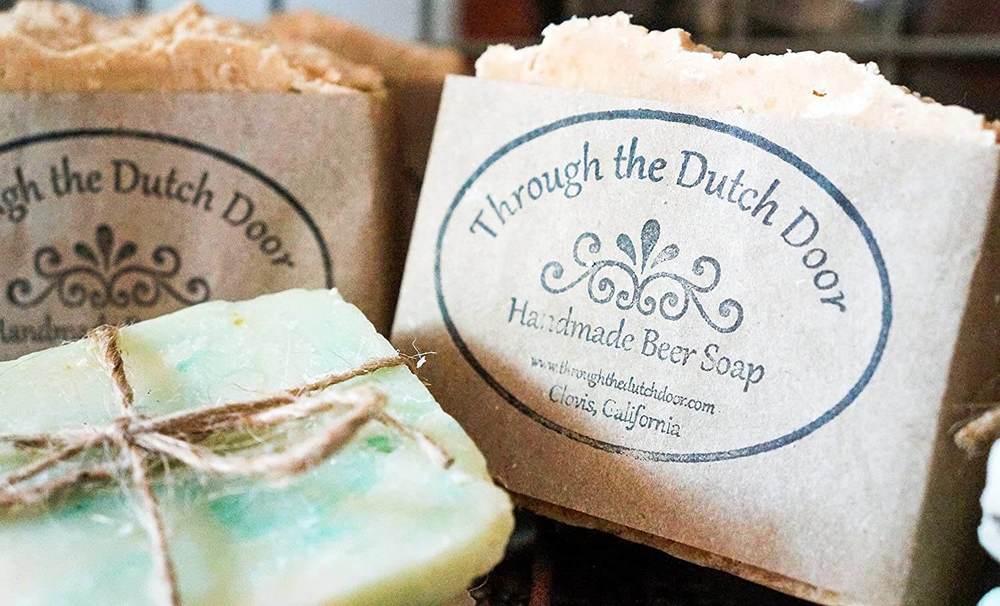
🥗 Food
Cheese 💲 💲 💲 💲
Cheese making has been part of the national heritage for centuries and has evolved to become a highly prized product around the world. Dutch cheese is simply delicious and with plenty of variations, textures and flavors to choose from; the only issue is to decide which one to buy.
🛒 Where to buy: markets, supermarkets
💰 Price range: 5 - 20 EUR
🎁 For whom: grandparents, parents, friends
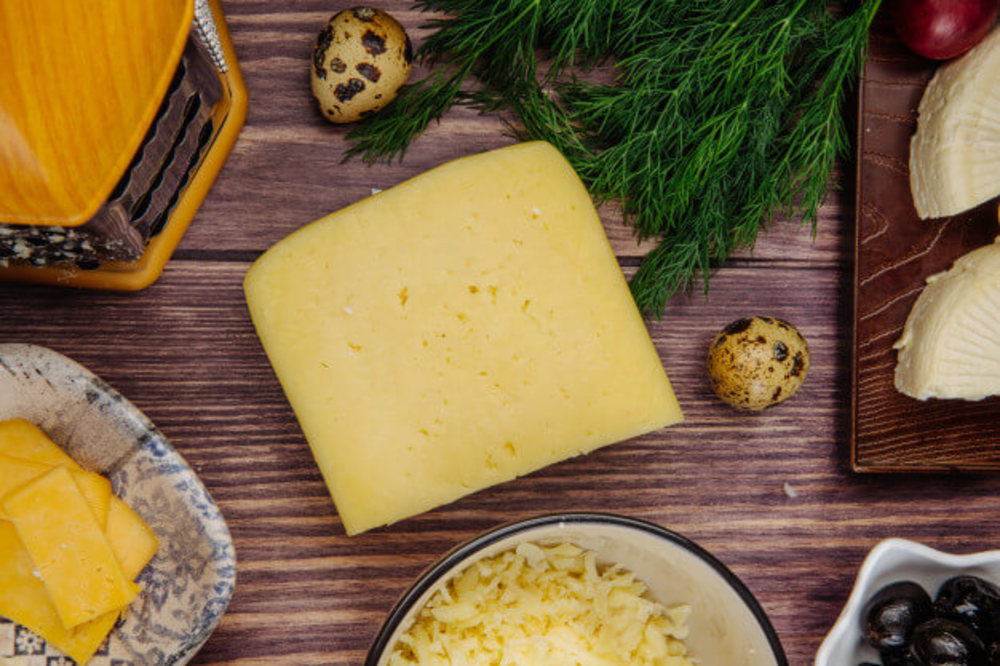
Drop 💲 💲 💲 💲
This sweet or salty candy is a local, traditional delicacy. It is usually bought by weight. Drop also has a positive effect on health - it helps to relieve sore throats!
📌 Region: South Holland
🛒 Where to buy: supermarkets
💰 Price range: 2 - 6 EUR
🎁 For whom: grandparents, parents, friends, kids, spouse
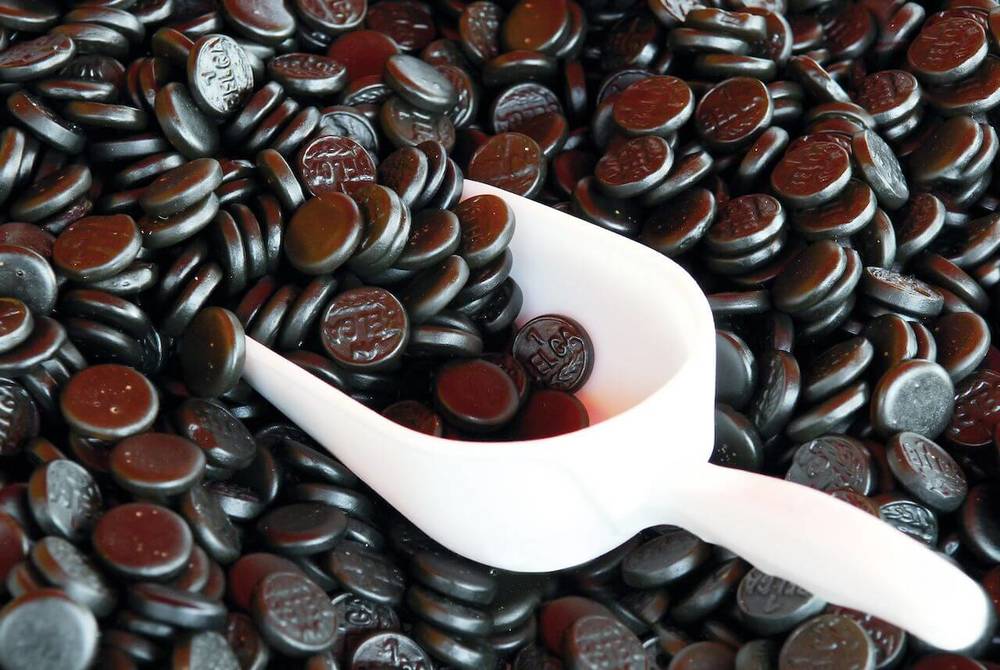
Poffertjes 💲 💲 💲 💲
Those are small dutch sweet pancakes available in most of the supermarkets, made from yeast and flour. In the Netherlands , they are served warm with sugar powder and butter.
📌 Region: South Holland
🛒 Where to buy: supermarkets
💰 Price range: 15 - 40 EUR
💡 Pro tip: The best ones are to find in restaurants
🎁 For whom: grandparents, parents, spouse, kids
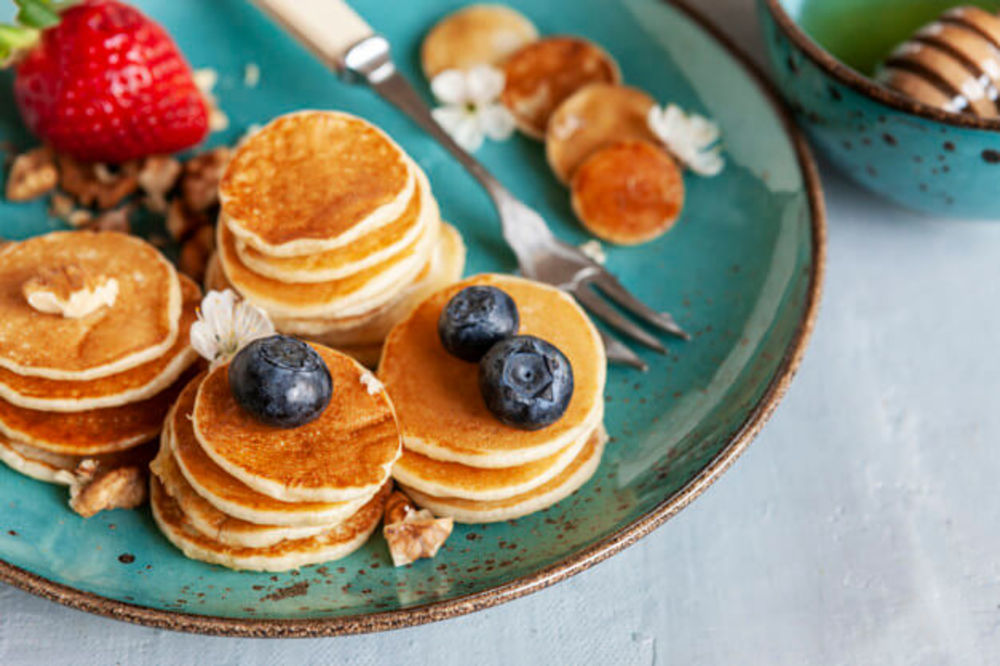
Stroopwafels 💲 💲 💲 💲
Two crispy wafers joined together with caramel is a favourite snack of busy tourists - easy to put in your backpack, it will also work as a sweet gift for family and friends. You can get them almost everywhere! They taste best if you leave them over a hot cup of tea.
🛒 Where to buy: supermarkets
💰 Price range: 2 - 10 EUR
🎁 For whom: grandparents, parents, friends, kids, spouse
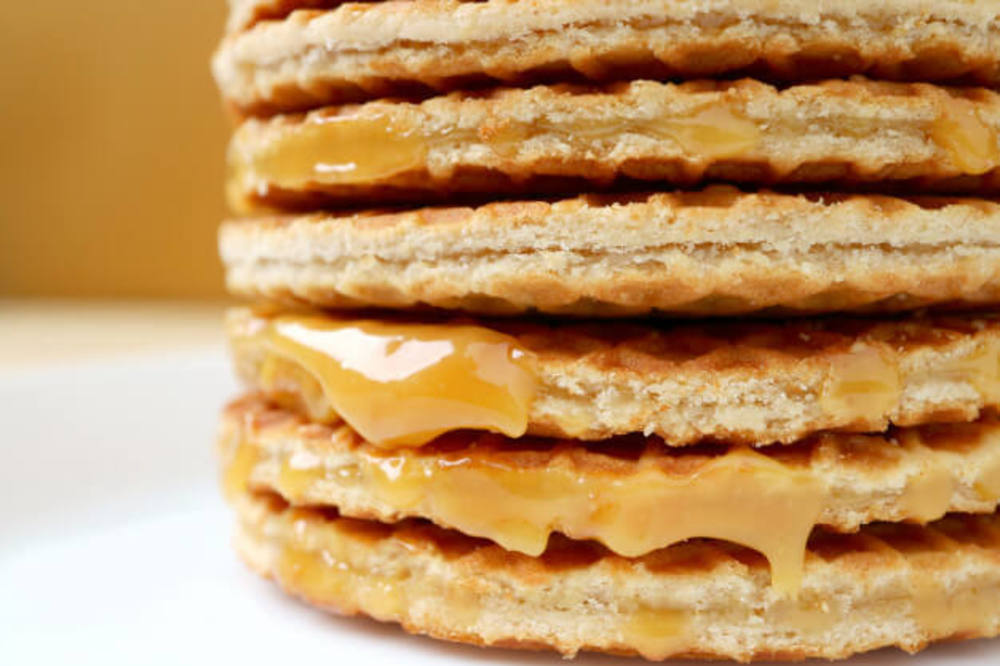
🏡 Home Decor
Candles 💲 💲 💲 💲
They make a fine addition to almost every Dutch household and they come in many colours and sizes. In the Netherlands, they become even more common during Christmas time.
🛒 Where to buy: candle stores
💰 Price range: 2 - 10 EUR
🎁 For whom: grandparents, parents, friends, spouse
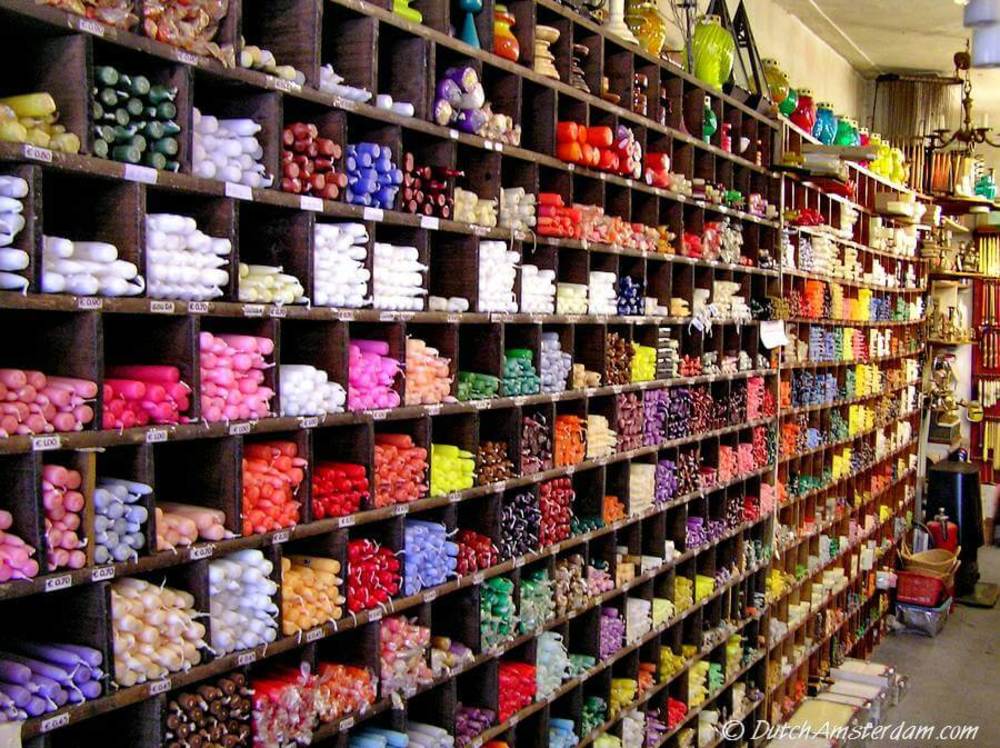
Delft kissing figurines 💲 💲 💲 💲
Those figurines feature a couple during a kiss, frequently called Jan and Grietje, dressed in traditional folk outfits. They are made of delft and always come in white and blue. Occasionally, they are presented with windmills or tulips.
🛒 Where to buy: porcelain shops
💰 Price range: 4 - 20 EUR
🎁 For whom: grandparents, parents, spouse
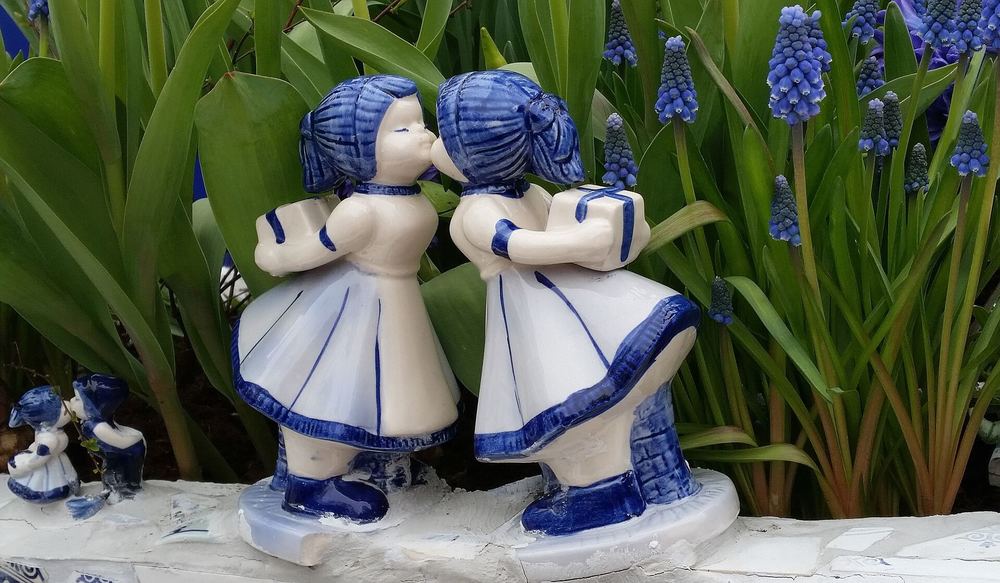
Delfts Blauf 💲 💲 💲 💲
This popular Dutch pottery can be found in many shops around the biggest cities. It's a great gift choice , if you're looking for something practical yet beautiful and classy. Especially for the seniors.
🛒 Where to buy: antique shops
💰 Price range: 2 - 30 EUR
💡 Pro tip: If you're looking for original pottery, try antique shops! Most of the available options are imported nowadays.
🎁 For whom: grandparents, parents
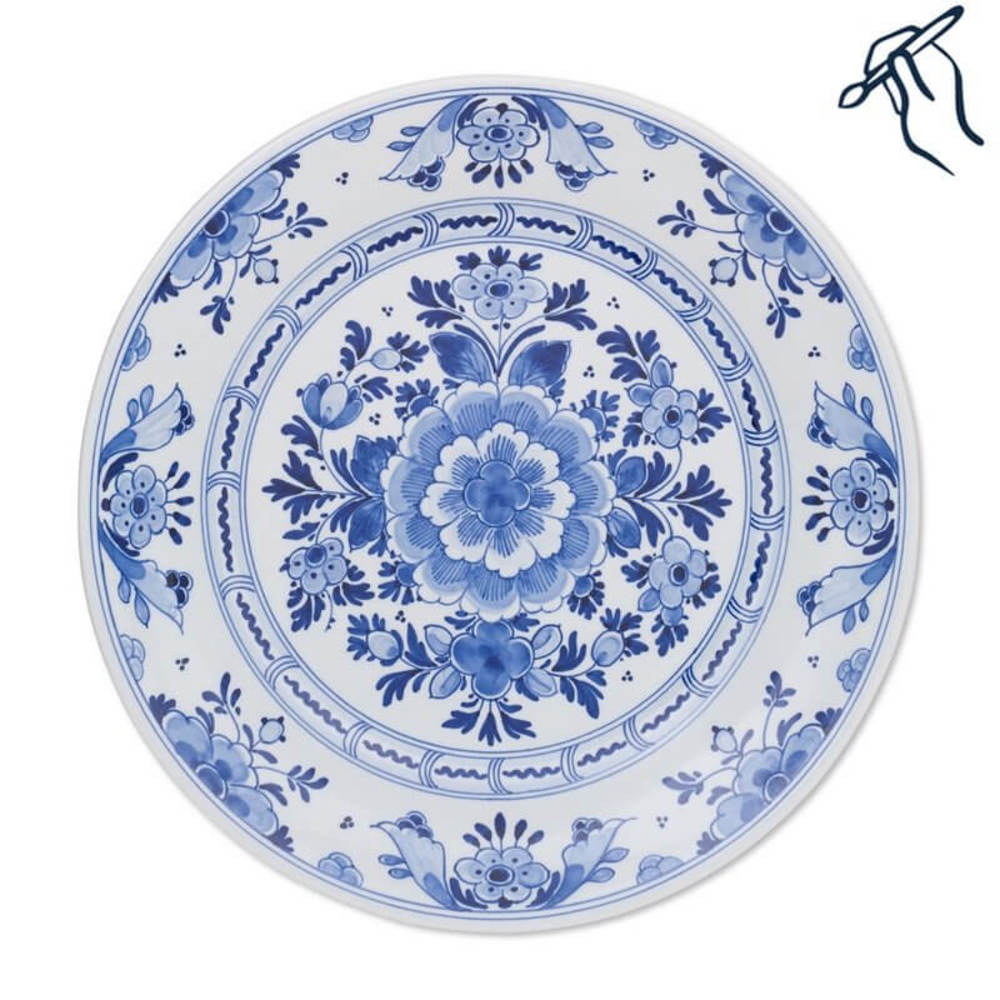
Kerosene lamps 💲 💲 💲 💲
Throughout history, Rotterdam’s oil lamps were made for sailors as ship equipment and even today their appearance is similar to the ones from the 1900s.
📌 Region: South Holland
🛒 Where to buy: gift shops
💰 Price range: 100 - 200 EUR
🎁 For whom: parents
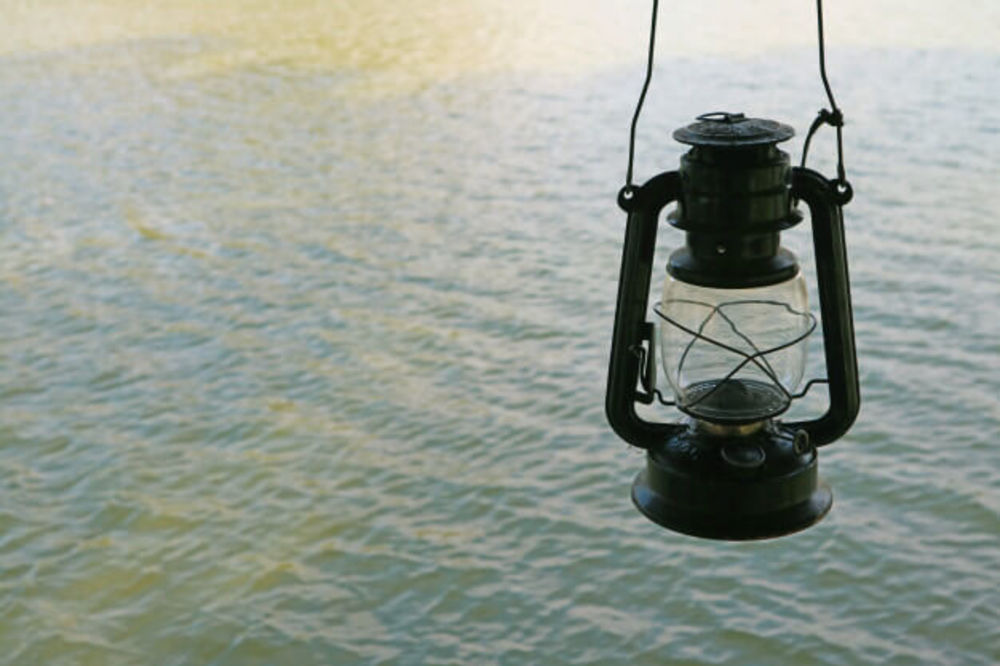
 Netherlands - Souvenirs
Netherlands - Souvenirs
We hope that in this article you have found some suggestions of souvenirs from Netherlands that you liked! Or maybe you have a different idea of what to bring your loved ones from this country? Be sure to write!
Did you find this information valuable?
Thank you for co-creating with us! 😊 Remember to give us feedback by pressing the thumbs up or down under every section.
The quality of content is essential for us. Please let us know what influenced your opinion.
Thank you!
Netherlands packing list 💡
- Bike - When driving your own car, it is worth taking your own, but renting one will not be a problem either.
- A raincoat or an umbrella - Better to be prepared for rainy contingencies. It will not hurt you, and it can save you from catching a cold!
- Cosmetic with accessories - These items in the Netherlands may be a bit more expensive.
- Warm jacket with a membrane - It will be useful for tough weather conditions.
- Evening outfit - If you want to experience Amsterdam's nightlife, please bring elegant clothes. Evening dress is often required in casinos and even welcomed in some clubs.
Did you find this information valuable?
Thank you for co-creating with us! 😊 Remember to give us feedback by pressing the thumbs up or down under every section.
The quality of content is essential for us. Please let us know what influenced your opinion.
Thank you!
Get a personalized packing list before travel to Netherlands 🧳
Health information
Health risks and required vaccinations
Packing lists
Personalized item list to pack matching your destination
Weather insights
Packing list adjusted to local weather
To-do lists
Everything you need to do before leaving home
Weight limits
Never pay excess baggage fees again
Local prices
Average cost of food, tickets and accommodation
Tourist information about Netherlands
| Country | Netherlands |
| Capital | Amsterdam |
| Currency | European euro |
| Language | Dutch, West Frisian, English, Papiamentu |
| Timezone | GMT+1 |
| English speaking | Widely spoken (advanced) |
| LGBT tolerance | Very high |
| Gender ratio (overall) | 50% | 50% |
| Population | 17.1 mln |
| Visitors per year | 20.1 mln |
Did you find this information valuable?
Thank you for co-creating with us! 😊 Remember to give us feedback by pressing the thumbs up or down under every section.
The quality of content is essential for us. Please let us know what influenced your opinion.
Thank you!
Useful information about Netherlands
| Card payments | |
| ATM Availability | Major cities |
| Suggested ATM takeout | 100 EUR |
| Drinking in public | |
| Tap water | |
| Internet speed (avg.) | 88 Mbps |
| Socket type |
|
| Best taxi app | |
| Public toilets | Unpopular & Paid |
| Top mobile providers | T-mobile, Vodafoen, KPN |
| Best internal air carrier | KLM |
Did you find this information valuable?
Thank you for co-creating with us! 😊 Remember to give us feedback by pressing the thumbs up or down under every section.
The quality of content is essential for us. Please let us know what influenced your opinion.
Thank you!
Cost of living in Netherlands
| Meal, Inexpensive Restaurant |
15 EUR
17.7 USD
13.1 GBP
63.28 PLN
|
| Meal for 2 People, Mid-range Restaurant |
60 EUR
70.79 USD
52.39 GBP
253.11 PLN
|
| Domestic Beer (0.5 liter draught) |
4.5 EUR
5.31 USD
3.93 GBP
18.98 PLN
|
| Gasoline (1 liter) |
1.64 EUR
1.93 USD
1.43 GBP
6.92 PLN
|
| One-way ticket (public transport) |
3.2 EUR
3.78 USD
2.79 GBP
13.5 PLN
|
Did you find this information valuable?
Thank you for co-creating with us! 😊 Remember to give us feedback by pressing the thumbs up or down under every section.
The quality of content is essential for us. Please let us know what influenced your opinion.
Thank you!
Quality of life in Netherlands
| Quality of life | Very high |
| Safety Index | High |
| Healthcare likability | High |
| Climate likability | Very high |
| Costs of living | Moderate |
| Level of pollution | Low |
Did you find this information valuable?
Thank you for co-creating with us! 😊 Remember to give us feedback by pressing the thumbs up or down under every section.
The quality of content is essential for us. Please let us know what influenced your opinion.
Thank you!
Important numbers
| General emergency number | 112 |
Did you find this information valuable?
Thank you for co-creating with us! 😊 Remember to give us feedback by pressing the thumbs up or down under every section.
The quality of content is essential for us. Please let us know what influenced your opinion.
Thank you!

